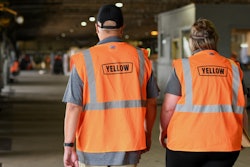I have bought a lot of corkscrews in my life. It’s one of those requisite tools you never seem to have with you when you need it. So off you go to get another, throw it in a drawer, glovebox, toolbox, etc. planning for a future critical moment when you will need it again only to discover that when that time comes, you can’t find it.
Or, you might be a wine technology geek and always ready to pay a premium for that next great revolution in cork removal, something with an app running on your smart phone, that magically allows the bottle to self-open with no labor whatsoever when the wine is at exactly the right temperature and humidity to be consumed with maximum enjoyment. It probably even posts its accomplishment to multiple social media cites and asks Siri or Alexa to order another bottle for drone delivery to your home.
Or you have friends you are struggling to buy just the right birthday gift for and, when combing the web, there it is: a personalized, bifurcated, solar powered, pneumatic cork remover.
I even sat through an excellent course on Six Sigma design methods sessions where the corkscrew was the class laboratory rat. The black belt brought in a whole box full of progressively more capable corkscrews to show how the design evolved to an apex device – the ultimate corkscrew in his expert analysis.
The thing about it is that few people actually pause to ask why a bottle needs a cork in the first place. Some innovative wine makers faced with a lack of supply of cork moved to plastic ones. But an even more innovative group went further and eliminated the cork altogether, replacing it with a twist cap – obsoleting centuries of corkscrew advances and giving cork forests a new lease on life.
Another Six Sigma black belt training focused on the evolution of mouse traps. I think I deflated the presentation by pointing out that making a better mouse trap is no longer important if you don’t have mice.
Which brings me to the fundamental flaw in arguing about battery electric trucks; that the batteries are never good enough — too heavy, too slow to recharge, too expensive, not enough raw material in the world to support future demand, hard to recycle, don’t last long enough, etc.
Out of the blue, my son says "Why can’t trucks use overhead catenary power? It removes most of the battery pack from the truck, removes the need to put charging infrastructure in at every depot, warehouse, restaurant, grocery, etc. Or better yet, put it inside the pavement and use wireless charging?"
This is not a new idea. It’s been on the table for some years, with demonstrations in Sweden and Germany, and there is even a one-mile in-road demonstration going in now in Detroit, and a demonstration was done in 2017 at the Ports of Los Angeles and Long Beach.
I was invited to present to a sustainable transportation class taught by Professor Parth Vaishnav at the University of Michigan earlier this year. Students eventually got around to asking my opinion of catenary or in-road charging systems versus traditional battery electric trucks. Dr. Vaishnav said that the economics from his research favored electrified highways over traditional BEVs.
A cursory look supports that argument. Instead of running power to hundreds of individual depots and warehouses in a region, why not just electrify the roadway? Instead of a mishmash of utilities and fleets trying to talk together and figure out how to put in charging at facilities, why not have a single system? This was the logic that built the U.S. interstate highway system in the 1950’s and 1960’s.
Yes, power demand is extreme, but, whether there are a 10,000 400 kWh BEV trucks charging at their depots in a region or 10,000 e-road trucks charging as they are driving on the road that require 400 kWh, the regional power demand nets to the same amount. Whichever way you go, the grid capacity will need to be there, including micro-grid capacity and other distributed energy resources like stationary battery packs, small nuclear generators, wind turbines, solar panels, RNG fired power plants, hydroelectric, etc. Electric generation capacity will need to grow for the electrified future zero-emission world.
A catenary powered on-highway fleet would have very small batteries. The raw materials needed to build out the network are more abundant and less costly. The energy conversions are very high efficiency. The systems can be made durable; look at cities that have overhead catenary systems like Portland, Oregon, or San Francisco, or look the high-speed train systems in Europe, Japan and China.
The more I thought about this, the more enticing the idea became. The first reaction that “it’s crazy” passed and I started thinking about the capital investment of catenary powered trucks versus building out a hydrogen network. I bet the math favors catenary trucks there as well. Keep in mind that creating green hydrogen requires two to three times the electric energy per mile that a BEV uses, and that compressing that hydrogen to as much as 10,000 psi to put into the trucks also requires significant electricity. A National Renewable Energy Laboratory report in 2016 estimates each kilogram of hydrogen requires anywhere between 2.6 and 3.3 kWh of electrical energy to be compressed near the pump. There are no free rides with energy.
At some point in our shared history someone thought a national rail network was impossible, too complex, too costly, etc. Later there were people arguing that a national highway system was too expensive and too difficult to build. Others argued that electricity would not be viable everywhere. Others still couldn’t envision smart phones everywhere. History has many examples of underestimating people. And no, aliens did not build the pyramids.
We don’t seem to talk much about the other EV: the e-road truck. But perhaps we should.
Is the pure battery electric truck going to be like the corkscrew? If batteries are the primary issue, why not take that off the table as an argument against them? Something to think about as we forge ahead in the messy middle of multiple freight power technologies.












![Volvo Vnl Sleeper Review[20]](https://img.ccjdigital.com/mindful/rr/workspaces/default/uploads/2025/11/volvo-vnl-sleeper-review20.lrVppY9UDR.jpg?auto=format%2Ccompress&fit=crop&h=167&q=70&w=250)
